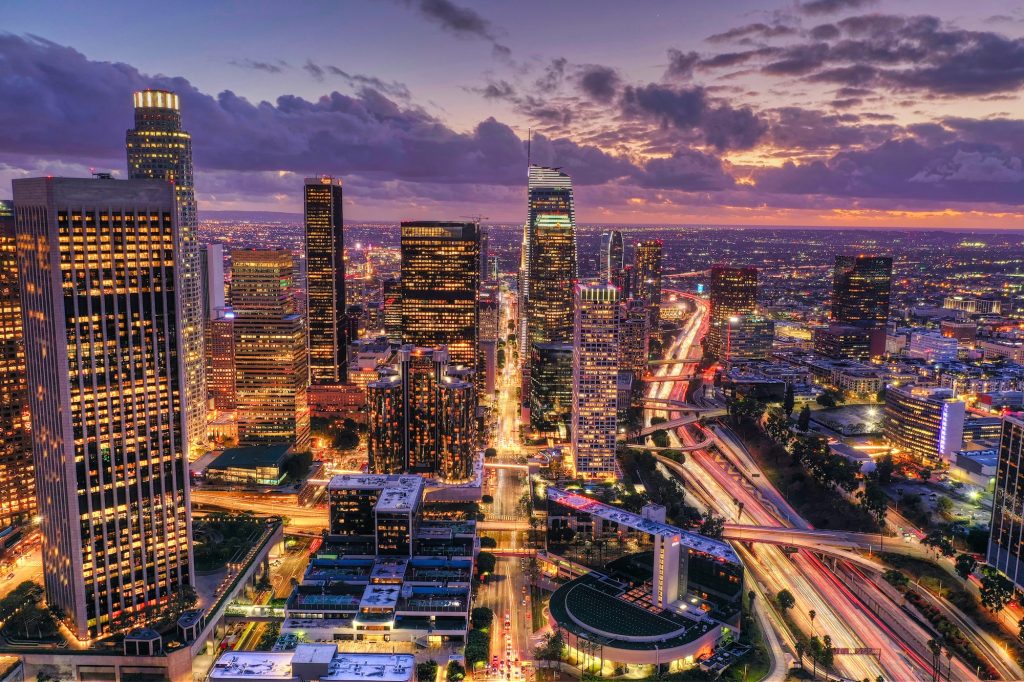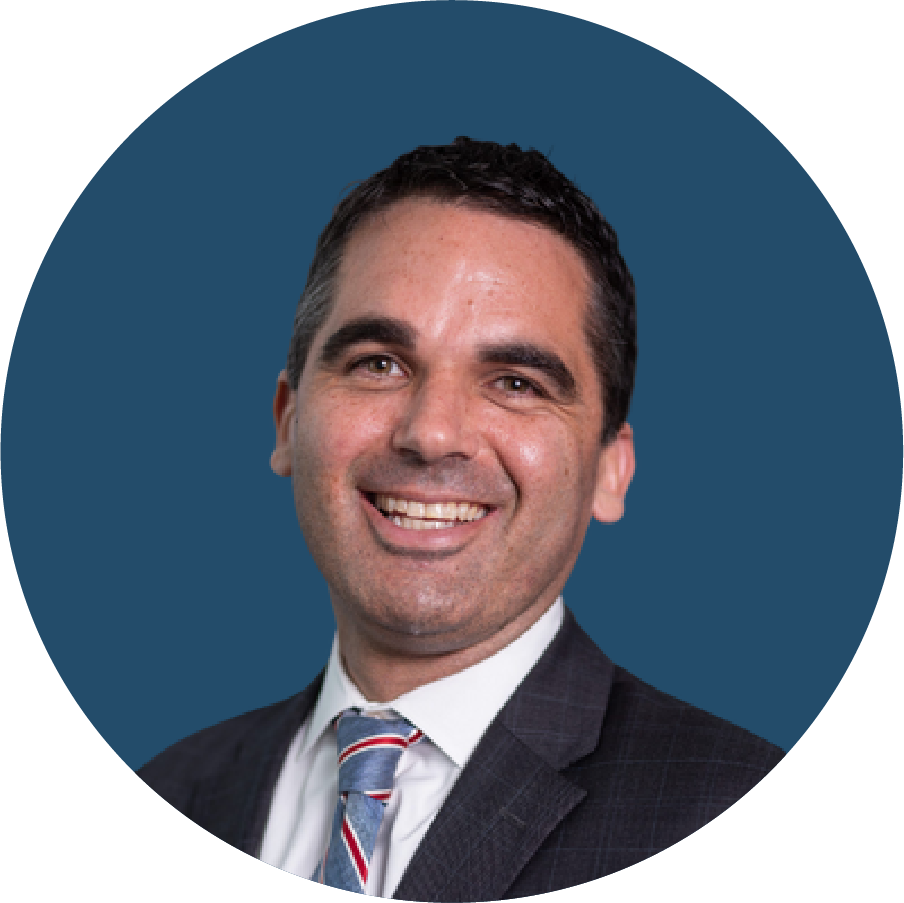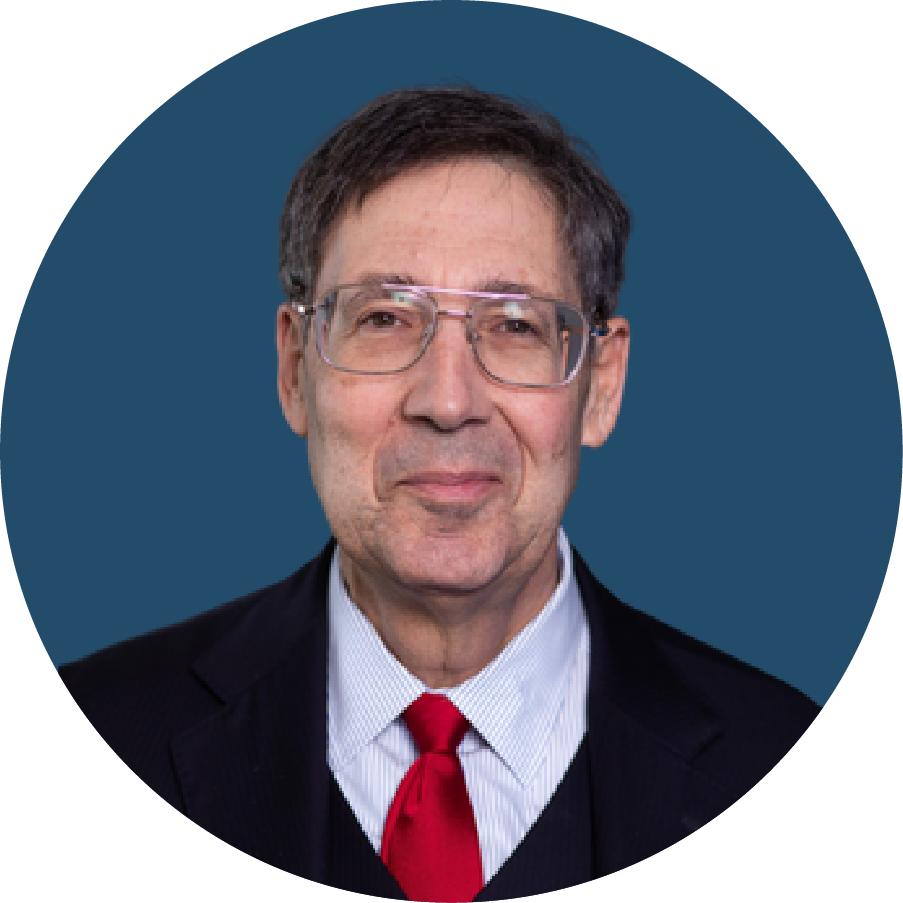Another world-shaking, world-reordering war in Europe. Brewing fears of war on an even greater scale in Asia. A coronation in China and political upheaval across the democratic world. Climate-induced catastrophes and emboldened movements to mitigate and adapt to them. The worst energy crisis in a half century and worst food crisis in over a decade. Spiraling inflation and the specter of global recession. A less acute but still-raging, still-hugely disruptive pandemic. Epochal ferment in social media and technology more broadly.
Recently, the leaders of the Atlantic Council’s sixteen programs and centers gathered to take stock of these and other developments and trends over the past year, peer into the future, and predict the biggest global risks and opportunities that 2023 could bring.
The results of this foresight exercise are below. Each scenario is assigned a probability; “medium” means a 50/50 chance that the scenario will occur within the next year. Many lower-probability but highly consequential scenarios are included because—as has been so vividly demonstrated this past year—those types of events tend to be some of the most disruptive and transformative. And keep in mind: Forecasts are not destiny. Political leaders and policymakers have agency in shaping whether and how these scenarios play out in the coming year or beyond. The primary purpose of assessing global risks and opportunities, in fact, is to gain insight into how to avert unwanted outcomes and achieve desired ones. To that end, don’t miss the policy prescriptions mixed into many of the entries below.
Top risks

A surge in climate adaptation curtails progress on cutting emissions, locking in at least 1.5 degrees of warming
Pakistan’s devastating floods in 2022, along with the tireless advocacy of Pakistan’s federal minister for climate change, Sherry Rehman, played a pivotal role in rallying parties at the COP27 climate conference to create a Loss and Damage Fund, where rich countries will provide payments to developing countries confronting the costly impacts of climate change.
But there is a strong possibility in the coming year that this new and desperately needed focus on climate resilience, loss, and damage will produce an unintended opportunity for backsliding on mitigating climate change. Moving from the COP27 agreement to an actual fund with money and a plan to disburse it will require tremendous international activism and action, which could reduce the pressure on governments and non-state actors to cut greenhouse-gas emissions and transition to clean energy. That would slow the already sluggish speed at which the world reins in global warming—the root cause of the destruction that has necessitated the Loss and Damage Fund in the first place. If country and corporate delegates show up in December at the COP28 climate-change conference in the United Arab Emirates with a focus on climate adaptation and loss and damage, but without major commitments to reduce emissions as well, we’ll know this scenario has materialized—and that this century the world will blow past an average increase in temperatures of 1.5 degrees Celsius above pre-industrial levels, which countries have sought to avoid as part of their commitments at the 2015 Paris climate conference.

Iran becomes a nuclear-weapons power
In 2023, Iran is very likely to pass the point of no return and become a de facto nuclear-weapons state. Outside experts estimate that Iran’s dash time (the time it would take to make one bomb’s worth of weapons-grade uranium) has shrunk to just a few weeks. As Iran continues to ramp up its nuclear program, this timeline will soon shrink to zero.
With international nuclear talks stalled amid continuing protests inside Iran at the end of 2022, a diplomatic breakthrough to halt the program now seems implausible. Several consecutive US presidents, including Joe Biden, have said that the use of force is a last-resort option to keep Tehran from the bomb, but many suspect a bluff. Washington is not taking the steps (such as building domestic or international support for military action) that would be the obvious prelude to military strikes on Iran’s nuclear facilities. Iran is unlikely to test a nuclear explosive device in 2023—and it will take time (perhaps years) for it to put a warhead on a ballistic missile. But once Iran has enough weapons-grade material for its first bomb, the game is over. We will look back at 2023 as the year in which the bipartisan US and international effort to keep Tehran from the bomb failed.

The United States loses Colombia—and with it, increasingly, Latin America
Colombia has long served as the linchpin of US policy in Latin America, and it is currently the only major economy in South America that does not have China as its largest trading partner. But all that may be set to change in 2023. In pursuing his policy agenda, the country’s new president, Gustavo Petro, could generate a backlash in the US Congress, particularly the Republican-controlled House of Representatives.
Those policies include Petro’s efforts to reimagine (and potentially scale back) cooperation with Washington on judicial issues and criminal extradition, achieve a possible agreement with Colombia’s National Liberation Army guerrilla group, and move away from lockstep coordination with the United States on eradicating drugs and overall drug policy (a joint approach that has been the fundamental tenet of US-Colombia relations over the last twenty years). Fallout in the United States, could, in turn, offer China an opportunity to increase its clout in Colombia. More broadly, inflation and other economic woes in the United States could have outsize consequences for Latin American countries, including greater political polarization and social unrest that leads to democratic backsliding as well as sovereign-debt issues. China could then position itself as a provider of desperately needed relief for countries grappling with these challenges. In such a scenario, US policymakers might be at risk of increasingly losing influence in not just Colombia but Latin America as a whole. A secure position in its near abroad has long been a predicate for America’s robust global posture. Is that position now poised to further erode, even with a longstanding ally?

The internet splinters entirely and irrevocably
Authoritarians have been trying to assert control over their technology ecosystems for years, but 2023 could be the year they finally succeed in creating online information environments that they can fully command. Russia, for example, has increased efforts to censor or shut down entire digital platforms for allowing any information about its war of aggression against Ukraine, turning these platforms into a new domain of conflict. China is going further and seeking to build the backbone of an unfree internet beyond its borders by investing in information infrastructure as part of its “discourse power” strategy. Even some democracies such as India and Turkey are instituting sweeping internet shutdowns and crackdowns on freedom of expression online. The US government, meanwhile, lacks a clearly articulated strategy to promote an alternative at home and abroad. What’s playing out is not a partitioning of the infrastructure on which the internet operates, but rather an intensifying contest over the rules that govern infrastructure that is inherently interconnected.
Don’t expect a switch to flip, but watch for a slow roll toward two internets: one designed to facilitate government control with built-in surveillance, and one at least aiming to be free, open, secure, interoperable, and governed by many. There is a low likelihood that a full-scale splintering happens in the coming year. But if it does, it would change the world for a long time to come—and it could have a catalytic impact on nearly every other risk and opportunity on this list. There is opportunity embedded in this risk, however: Through novel mechanisms such as the Freedom Online Coalition, the US-EU Trade and Technology Council, a new US State Department bureau focused on digital freedom (the Bureau for Cyberspace and Digital Policy), and new offices at the US National Security Council, democratic countries are now better staffed and resourced to craft that much-needed strategy for protecting an open, global internet. There is nothing inevitable about a “splinternet.”

The United States and its allies give up on Ukraine and acquiesce to a Russian victory there
As long as US leadership remains strong, Russian President Vladimir Putin will lose in Ukraine. But a Russian victory could come if the United States forgets its vital interests in this outcome. There are several ways in which such a scenario—whose probability I’d put at under 10 percent—could materialize.
One possibility: In response to Putin’s continued nuclear saber-rattling, fear of nuclear war (fear that would likely be ill-considered, I believe) grows to such an extent in the United States that the country ends up substantially reducing aid to Ukraine. If populist right-wing politicians, despite their underperformance in the US midterm elections, gain greater influence in Washington, that could also lead to a reduction in such assistance. Higher energy prices in the United States and especially in Europe could pressure governments as well.
Putin is playing the long game with Europe—and he can still win. Thus far we’ve seen unprecedented, underappreciated European cohesion in response to Russia’s war against Ukraine, but that unity can’t be taken for granted. And we’re already seeing cracks in familiar places, including between large and small countries as well as wealthy and poorer ones. There are four drivers of this risk, which taken together could produce political gridlock and fragmentation in the European Union (EU). The losers in such an outcome? Europe, Ukraine, and the transatlantic relationship. The Winner? Putin.
- Energy shocks: The coming year’s energy crisis could be worse than this past year’s. With Russian gas flows no longer available to refill depleted European stocks early in 2023 and no significant new European import capacity coming online, prices in the region could stay elevated and produce a mad scramble for gas.
- Economic contraction: The economic ripple effects of gas shortages include the risk of recession, inflationary pressures, business failures, and all the attendant impacts on cost of living, living standards, and labor markets, which in turn have political repercussions. In the medium term, these consequences might do lasting damage to European competitiveness. We’re already seeing trade surpluses dwindling and key economic sectors idling production.
- The toxic brew of #1 and #2: The stabilization measures that European governments have put in place to respond to the two challenges above could fuel concerns about sovereign debt and lead to a new Eurozone crisis.
- Domestic dynamics: The Franco-German engine of European action is sputtering. Economic problems, French President Emmanuel Macron’s precarious parliamentary backing, and German Chancellor Olaf Scholz’s complicated three-party coalition constrain both countries’ leaders at home and in the region, and there is uncertainty about how Italy’s new right-wing, EU-skeptical government will relate to Brussels. Major elections in 2023 in Poland, Greece, Estonia, Finland, Spain, and other countries could bring Euroskeptic and Russia-sympathetic politicians to the fore—while also pushing existing governments in those directions.
The end of 2022 featured the worst global energy crisis since the Arab oil embargo of the 1970s. The crisis is not purely of Russia’s making, though major drivers include the geopolitical uncertainty produced by the Kremlin’s invasion of Ukraine as well as Russian attempts to weaponize its oil and gas supplies. The decrease in energy demand during the early part of the COVID-19 pandemic aggravated chronic underinvestment in the energy sector. Coupled with a rapidly warming planet, these factors have put affordable and reliable energy resources out of reach for many in both developed and emerging economies. Moreover, price pressure on the conventional energy resources of oil, gas, and coal comes when the world is also experiencing a unique confluence of drought and abnormal weather patterns, which have hobbled access to electricity from nuclear power (in France, for instance, where water scarcity is impacting nuclear-fuel production) and hydropower (in China and previously Argentina and Brazil).

Jihadists construct a “terrorist bridge” from the Red Sea to the Atlantic
Burkina Faso experienced two coups in 2022 and Mali is still ruled by a military junta that seized power at the end of 2021. The military factions that took control in each country have not yet allowed transitions to democratic elections to take place. The resulting political instability and uncertainty in West Africa compounds the challenges of containing the jihadist movements active in both countries and elsewhere in Africa, with recent attacks in Benin, Cote d’Ivoire, and Togo.
These jihadists—linked to al-Qaeda and the Islamic State—seek to control a span of territory stretching from the Red Sea to the Atlantic coast of Africa. That would grant them access to drug-trafficking routes from South America, which would provide a substantial source of revenue for their wars. Though great-power competition and conventional warfare are in the global spotlight now, jihadist groups with transnational ambitions, based in weak, unstable states, are a risk that merits attention. With jihadist movements also active elsewhere on the continent—from Mozambique to the Great Lakes—some experts are stressing the risk of an “Africanization of jihadism.”

A crisis just short of war erupts over Taiwan
There are many paths to a major crisis over the Taiwan Strait, the risk of which jumped significantly in the last half of 2022 following China’s military response to US Speaker Nancy Pelosi’s trip to Taiwan in August. How might it start? It probably won’t be a development in Taiwan itself or some bolt from the blue by the Chinese. I haven’t seen serious signs that China will attempt to force Taiwan to unify with the mainland in the coming year.
One possible spark would be some action by US policymakers in Congress, where momentum in favor of stepped-up US material and rhetorical support for Taiwan’s defense and de facto independence is only likely to grow with the Republican takeover of the House. China’s reaction would likely go well beyond what it did following Pelosi’s visit, which included launching ballistic missiles near Taiwan, carrying out military exercises in the waters around the island, conducting a dry run for a blockade, and canceling diplomatic dialogues with the United States. Whatever the response from Chinese leaders, the result will be a new—and more confrontational—normal. They might, for example, take retaliatory actions in Taiwan’s offshore islands or launch a cyberattack against Taiwan’s electrical grid. They may carry out measures that affect the Taiwanese economy or regional supply chains—such as a true blockade of the island—and generally make a mess of the global economy as a result. World War III over Taiwan in 2023 isn’t likely, but what is more likely is a serious Strait standoff short of war that tests US resolve and raises the risk of war in the near future. And any confrontation that pushes the United States and China further into their corners is dangerous in its own right,

Countries—and not just US adversaries—move away from the dollar faster than anticipated
Alarmism about the health of the US dollar is an age-old tradition in Washington and beyond. Even a broken clock is right twice a day, though, and that time of day may be approaching. The dollar’s advantages remain deeply entrenched in the global financial system. Americans experiencing the strength of the dollar right now relative to currencies such as the pound, euro, and yen would be forgiven for thinking that there is nothing to worry about.
When you drill down, though, it becomes clear that many countries would like to move away from the dollar even if it won’t be easy and there is no clear alternative in the near term. That shift is, in fact, already happening gradually. The dollar’s share of foreign-exchange reserves is declining. Nations around the world—not just US rivals such as China but also countries including India, Indonesia, Malaysia, and South Africa—are investing in technologies such as central bank digital currencies that could make them less reliant on the dollar. The unprecedented global sanctions regime swiftly imposed on Russia in the wake of its February invasion of Ukraine has only increased the likelihood of an accelerated move away from the dollar—perhaps to a probability of roughly 15 percent. If countries can find ways around the dollar, the impact of sanctions would be undercut over time. The next time an adversary violates another country’s borders, the US economic counterpunch might not be quite as painful.

New momentum builds for US withdrawal from the Middle East—and this time it doesn’t meet resistance
Despite recurring pressures over the decades for US withdrawal from the Middle East, US interests in the region have remained stable and US and Middle Eastern leaders have repeatedly sought to overcome the challenges that could precipitate such a withdrawal. But my fear is that the stars align for that pattern to finally change in 2023.
In Washington, those advocating for less US action or presence abroad have growing influence in both parties, though to date they have been largely held at bay by the Biden administration. In Riyadh, relations with the United States are increasingly strained, with each side too often publicly expressing unreasonable expectations of the other. In Jerusalem, the most right-wing government in the country’s history is about to take office, bringing with it predictable challenges for the US-Israel relationship. In Tehran, the regime continues to extend its malign activities outside the region and violently repress its people, all while the most dangerous internal elements jockey for position amid the looming succession of the supreme leader. In this context, the central policy question that has driven US-Iran relations for three consecutive US administrations—should the United States favor or oppose the 2015 nuclear agreement with Tehran—becomes irrelevant. Longstanding regional partners too frequently deprioritize US concerns over China and Russia in an effort to hedge against the prospect of US withdrawal, which only serves to increase the probability of that outcome. Several of these partners are perceived to have taken sides in US partisan politics, which contributes to the trend of US policies shifting along with election results. So the questions must now be asked: Over the course of the coming year, will US and Middle Eastern leaders still recognize a strategic need to prevent US withdrawal from the region? If so, what preferences are they willing to subordinate to that end?

Developing countries suffer a wave of defaults and economic hardship
The world is moving toward a global recession. That will mean less demand and a lower price for non-energy exports from developing countries. At the same time, the cost of energy and food is rising, in part as a result of the global fallout from the war in Ukraine. Developing countries are therefore about to get squeezed—making less money on what they’re selling and paying more money for what they’re buying. At the same time, interest rates are going up everywhere and lenders are showing less tolerance to assume risk in their dealings with developing countries.
All this will make it harder for developing countries to service and refinance their debt, which will increase the likelihood of sovereign and corporate defaults. Defaults, in turn, could have broader knock-on effects such as stoking authoritarianism and insecurity in politically fragile countries. The poorest countries will fare the worst with these trends in the coming year.

A growing trust deficit destabilizes democracies from within
Many democratic countries are heading into 2023 with highly divided societies, shaky institutions, and question marks hanging over their political leaders. In Brazil, Jair Bolsonaro stoked rumors of voter fraud and rigged elections throughout the country’s 2022 presidential campaign and took his time conceding to Luiz Inácio Lula da Silva, who resumes the presidency after spending time in prison on corruption charges. In Israel, the fifth election in four years returned Benjamin Netanyahu to power by a razor-thin margin of victory. The United Kingdom is now on its third prime minister in months. The serious threat of political violence persists in a politically polarized United States.
What happens when the democratic world is led by people whose electorates largely don’t trust them—or even the elections that brought them to power? The potential outcomes include repeated leadership changes, continued chaos around elections, and more contestation of the validity of election results. In parliamentary systems especially, frequent elections introduce volatility that the world can ill afford. If the top of a democracy is unsteady enough, eventually it will shake the foundations.

US tech policy toward China drives a wedge in the transatlantic relationship
European companies could soon have to choose between the Chinese and US markets. While questions of economic relations and technological development are mostly understood as commercial activities in Europe, they are increasingly viewed through the lens of national security in the United States. In China, too, the ability to manufacture advanced technologies such as semiconductor chips is seen as vitally important to the country’s development and security.
Xi Jinping’s speech to the 2022 Party Congress made clear that he intends to double down on developing indigenous technological capabilities, which would not only enable further military advances but create more Chinese technology products that are able to compete with US suppliers. Historically, after developing strong domestic production capacity in a particular area, China has gone around the world and undercut other markets and suppliers. The risk this situation poses to US and European competitive advantage is compound: Companies usually fund research and development (R&D) as a fraction of their sales, and if sales drop then R&D funding declines and innovation slows. The United States is attempting to assert its technological leadership and hinder China’s technological advancement in two ways: promoting (through measures such as the 2022 CHIPS and Science Act) and protecting (through measures such as export controls) domestic industry. But both methods carry significant risks of unintended consequences. By reducing revenue for US companies that do business in China, for example, the “protect” strategy is likely to reduce the capital available from the private sector that the US government is counting on to reshore or “friend-shore” manufacturing capacity, putting US industry further behind Chinese industry in R&D investments. Some US partners are already so dependent on China either as a market for their domestic industries or as a supplier of critical technologies that full-blown tech decoupling won’t be possible without risking their economic health. This dependence might lead to worsening transatlantic relations and increasing disputes over how to deal with a rising China, which may even contribute to a splintering of the alliance supporting Ukraine.
Top opportunities

Ukraine wins—and becomes part of the institutional West
We should pay attention to Putin’s efforts to use Russian energy supplies as a weapon to break Western support for Ukraine. But that support has held steady even as temperatures have started dropping and as the Nord Stream pipelines carrying Russian gas to Europe have suffered apparent sabotage. These are among the many signs presaging support that lasts the winter, which could result in Western arms continuing to flow into Ukraine and the Russian military continuing to struggle on the battlefield.
If Ukraine wins the war in 2023—a big if, but not the unthinkable prospect it was a year ago—and eventually joins the European Union and NATO, the upside potential is enormous. And not only for Ukraine: Such developments would represent a huge success for US leadership in Europe and the future of the rules-based international system.

The transition away from fossil fuels reaches an inflection point
Net-zero greenhouse-gas emissions could be within sight by 2050 if we play our cards right. The 2022 Inflation Reduction Act alone represents the single largest investment in climate and energy in American history, presenting an unprecedented opportunity for the United States and its friends and allies to establish durable and secure supply chains that will accelerate the world’s march to net-zero emissions. Add to this the Bipartisan Infrastructure Law and the renewed focus in Western capitals this past year on diversifying away from reliance on Russian and Organization of the Petroleum Exporting Countries (OPEC) energy supply, and 2023 could be a bellwether year for the clean-energy transition.
To fully capitalize on the momentum, however, Washington needs to get out of its own way. There is a need to build conventional and clean-energy infrastructure, but that can’t happen until Congress passes permitting reform that would make it easier to produce oil and gas resources and move electrons from clean-energy sources in the United States. Such permitting reform has bipartisan support, but the odds of a polarized Congress passing it remain low—jeopardizing the country’s ability in 2023 to scale investment and seize this potential inflection point in the global transition from fossil fuels to clean energy.

Turkey emerges as a security guarantor in the Black Sea
NATO had a strong interest in a more stable Black Sea region even before Russia invaded Ukraine, but in 2023 securing the region will only grow in importance. As the Alliance’s second-largest military power and the country controlling the only way in and out of the Black Sea, Turkey has a pivotal role to play in ensuring the region’s stability and security.
There have been signs in 2022 that Ankara is willing to put this influence to good use, leveraging its connections with both Ukraine and Russia to push for direct peace talks between the two sides. Turkish Bayraktar drones have been instrumental in Ukraine’s defense, while Turkey has also leveraged its longstanding relations with Russia to facilitate, alongside the United Nations, an agreement with Moscow and Kyiv that unlocked the export of Ukrainian grain and lowered the risk of a global food crisis. Turkey is likely to continue to push for a settlement to the war in 2023. Should one start to take shape, Turkey could emerge as a security guarantor and regional counterweight to Russia. Turkish gas discoveries in the Black Sea also have the potential to bolster regional energy security and diversify energy supplies.

The United States demonstrates that “America is back” economically in Asia
If the United States were to reassert its economic leadership in Asia, which it more or less relinquished after the Trans-Pacific Partnership trade pact fell victim to domestic politics in 2017, it would serve as a response to the economic influence that China has racked up there in the intervening years. It would also represent an important shift from the US government’s primarily security-focused approach to the region.
Look for significant progress in US efforts to bolster economic ties in Asia by the time of the Asia-Pacific Economic Cooperation forum in San Francisco next November. Of particular note would be the finalization of negotiations on the Indo-Pacific Economic Framework as well as significant progress in negotiations on the 21st Century Trade initiative between the United States and Taiwan, which is meant to be a move closer toward a free-trade agreement. Collectively those achievements would show that the Biden administration is making good on its rhetoric about US commitment to the Indo-Pacific going beyond China to focus on benefits for countries across the region. It would also indicate that the United States is resuming its role of regional economic integrator and is prepared to offer a robust alternative to the China model.

Putin loses—abroad and at home
Putin is in deep water as the Russian military flounders in Ukraine. If the transatlantic community maintains its policy of support for Ukraine and pushback against the Kremlin—and especially if such support increases, leading to Kyiv regaining control of most of mainland Ukraine —don’t rule out Putin’s departure from power in 2023. The chances of that occurring, in fact, might be as high as 25 percent. Such a development would most likely flow from increasing economic pain and war casualties producing civil unrest in Russia, all of which prompts insiders to band together to push Putin out of office.
Some fear that any plausible replacement would be worse than Putin. But if past is prologue, the chances of Putin’s removal producing a political and diplomatic opening of some kind is significantly higher than that of an even more brutal and aggressive Kremlin policy emerging. If Putin’s failure in Ukraine leads to more than the already-unusual public discontent on display now in Russia, and to real political change in the country, that raises the possibility of at least limited liberalization and normalization of bilateral ties with the United States.

The European Union starts acting like a great power
Three factors could push Europe to move from debate to action on the question of a more geopolitical European Union. The first is Putin’s aggression in Ukraine. The second is China’s global assertiveness. The third is the potential return of Donald Trump to the US presidency in 2024.
For many European leaders, the past year’s dramatic developments answered some of the unresolved questions about European strategic autonomy. Russia’s war unequivocally underscored the United States’ indispensable role in European security. It also killed any remaining illusions about a European special relationship with Russia and converted even the most dovish proponents of that position in Berlin. Europeans are now much more strategically aligned on the question of the European Union’s relationship with power, even if the EU’s instruments for exercising hard power are still lacking. More hawkish views on China are on the ascendancy in the region as well. The coming year will be about how to put these ideas into practice geopolitically, diplomatically, and especially militarily. What might that look like exactly? If EU military aid continues to flow to Ukraine, that would be an indication that the shift to a more geopolitical EU is happening in practice. In Berlin, it could take the form of operationalizing the government’s ambitious Zeitenwende concept for how to engineer a turning point in German foreign and defense policy. Elsewhere, watch for the European Peace Facility (the security-assistance fund from which EU military support for Ukraine is drawn) to be replenished.

A push for EU expansion boosts the democratic world
Authoritarian Russia’s war against democratic Ukraine has had a boomerang effect on the Kremlin by prompting NATO’s expansion to the north to include Finland and Sweden. Now it may have a similar effect by propelling the European Union’s expansion to the south. As I know from experience in my native Romania, many former communist countries view EU membership as a means of escaping their oppressive Soviet past and the Russian sphere of influence with all its pathologies, including corruption, authoritarianism, and arbitrariness—as a way, in other words, of moving to a Western world of democracy, free markets, and rule of law.
Just as the Ukrainian government applied to join the EU within days of Russia’s further invasion of the country, leading the EU to speedily accept Ukraine’s candidacy (and that of Moldova), the conflict may well accelerate the EU membership bids of the Western Balkans countries in the coming year. Albania, Bosnia, Kosovo, Montenegro, North Macedonia, and Serbia will likely feel increased urgency to obtain the greater prosperity and security that they believe EU membership would provide, and EU leaders could be more inclined to embrace them—as Germany’s chancellor, for example, has recently signaled.

Venezuelan oil comes online, relieving pressure on global energy markets
Beginning with the November 26 announcement that the United States will issue a new license for Chevron to pump oil in Venezuela, the political space is opening for the United States to further lift the oil sanctions it imposed in 2019 in response to the increasing authoritarianism of Venezuela’s leader Nicolás Maduro. The interim government of Juan Guaidó, which the United States and more than fifty other countries recognized as the country’s legitimate leadership, will cease to exist in January when Guaidó’s term ends.
And the normalization of Maduro as Venezuela’s president is already underway across Latin America; even Colombia, once staunchly opposed to Maduro, reestablished diplomatic relations with his government in 2022. There are other signs pointing to a thaw as well, including Maduro’s participation at the COP27 climate-change conference and a prisoner swap between Venezuela and the United States in the fall. Talks between the Maduro government and its political opposition in Mexico City could foster a deal in which Maduro makes concessions—such as releasing political prisoners, granting opposition candidates access to traditional media outlets, and complying with the recommendations of election observation missions—regarding Venezuela’s 2024 presidential elections in exchange for the United States removing additional sanctions. That pact might include production-sharing agreements between US companies and the Venezuelan state oil company PDVSA as well as the creation of a fund for revenue from Venezuelan oil sales that prevents the proceeds from going to the Maduro government itself. Global energy markets will welcome this news—especially in Europe amid its energy crunch—since Venezuela has the world’s largest proven oil reserves. The country’s oil sector has grown dilapidated over the past decade. But with the right investments, in the span of a couple years, the world could have a significant new source of supply.

High-skilled visa reform finally happens in the United States
The chances that the US Congress could reform immigration law to allow more high-skilled immigrants to stay and work in the United States are now better than they have ever been. In the United States, many of the college and graduate students in the most in-demand science, technology, engineering, and math (STEM) fields are residents of other countries and have difficulty obtaining visas to remain and work in the United States after graduation.
From the US technology sector’s point of view, graduate degrees in STEM fields should come with a green card attached. Democrats and Republicans generally agree on the need for high-skilled visa reform, but the two parties have been unwilling to decouple this shared interest from other matters of immigration policy where they fundamentally disagree. The issue that might break this logjam is China, whose technological ambitions came into sharper focus during the 2022 Chinese Communist Party Congress. The national-security implications of falling behind Beijing could finally spur some limited reform. A legislative breakthrough that grants lawful permanent resident status for certain advanced STEM degree holders—perhaps as part of the National Defense Authorization Act—would be a big win for the US tech sector and the future of US innovation in emerging technology.

Funding for climate adaptation and resilience dramatically accelerates and doubles in size
One of the most significant outcomes of this past year’s United Nations COP27 climate-change conference was that it produced a path forward for the 2015 Paris Agreement’s Global Goal on Adaptation. That includes $230 million (admittedly still a drop in the bucket compared with an expected need of hundreds of billions of dollars per year) in new pledges by governments and development agencies to help countries adjust to a changing climate, as well as the announcement of the Sharm el-Sheikh Adaptation Agenda to enhance resilience in the world’s most climate-vulnerable places by 2030.
Outside the official negotiations at COP27, I witnessed numerous efforts to accelerate investment in climate resilience, including new initiatives to mobilize capital for adaptation to extreme heat and for cooling food, medicine, and buildings through methods ranging from light surfaces to green spaces and roofs to machines powered by renewable energy. The select non-governmental “Climate Champions” at COP27 also endorsed existing projects where the insurance industry is taking risk-transfer approaches to advance climate adaptation along with disaster preparedness and response. European Union regulators, meanwhile, have developed a taxonomy for the financing of climate adaptation, helping refine how to measure such investments. Less than 10 percent of total climate finance currently goes to climate adaptation. But the stage is set for an innovative cast of public and private actors to make 2023 a breakthrough year in which investments in climate adaptation more than double to account for a quarter of total climate finance.

Climate change accomplishes what nothing else will: Unite South Asian nations
The nearly 2 billion people living in South Asia, one of the world’s least economically integrated regions, all face a much higher-than-average risk from climate change, as was poignantly on display during Pakistan’s deadly floods this past year. One recent study, for example, found South Asia to be the region most at risk of suffering economic losses from climate change.
The threat has become dire enough that, as my colleague Harris Samad has pointed out, climate change may be the one chance to generate constructive transnational conversations in South Asia over the coming year. The catch that makes major progress unlikely? These conversations would need to occur among civil-society organizations, since the governments in the region have effectively closed down all cross-border scientific cooperation. Still, collaboration of any kind—from standardized climate curricula to a public-private forum for data-sharing to common strategies for building climate-resilient infrastructure —would present an opportunity to save countless lives. At the regional and local levels, it would also serve as a model for how to counteract climate change despite deep geopolitical divisions.

Global Foresight 2023
In this year’s edition of Global Foresight, the Atlantic Council’s senior experts identify the top risks and opportunities for 2023. Our foresight team spots “snow leopards” that could have major unexpected impacts in 2023 and beyond. And we share findings from our survey of global strategists and foresight practitioners on how human affairs could unfold over the next decade.




















